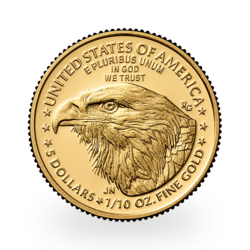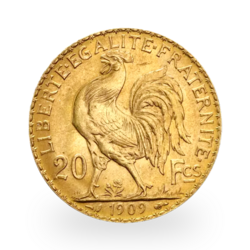To hell with all the theories about the weakening of the dollar, about its loss of influence at the international level. Here it is, triumphant, in Olympic form! Just look at the "Dollar Index" (DXY), which measures the strength of the US currency against the other major international currencies (euro, weighted at 57.6%, yen 13.6%, pound sterling 11.9%, Canadian dollar 9.1%, Swedish crown 4.2%, Swiss franc 3.6%). Since the beginning of 2021, Uncle Sam's currency has continued to rise:
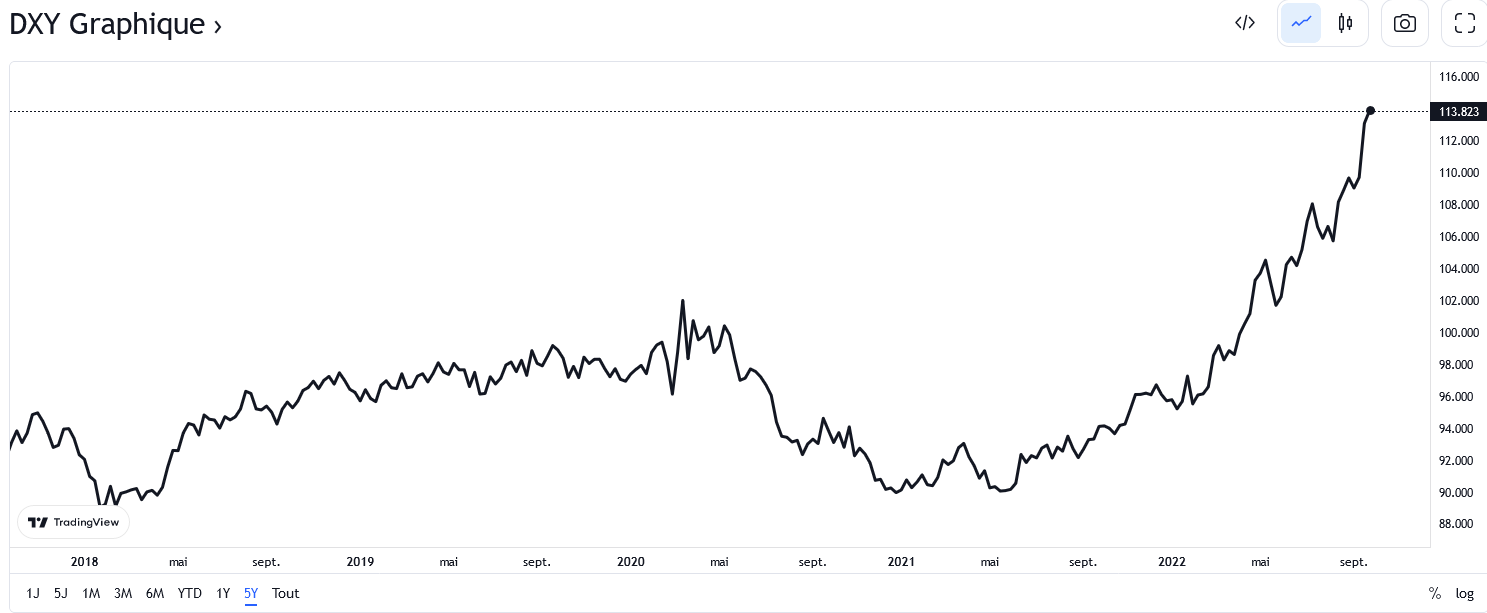
Nothing resists him at the moment, not bitcoin, not even gold, which is clearly falling against him since March:
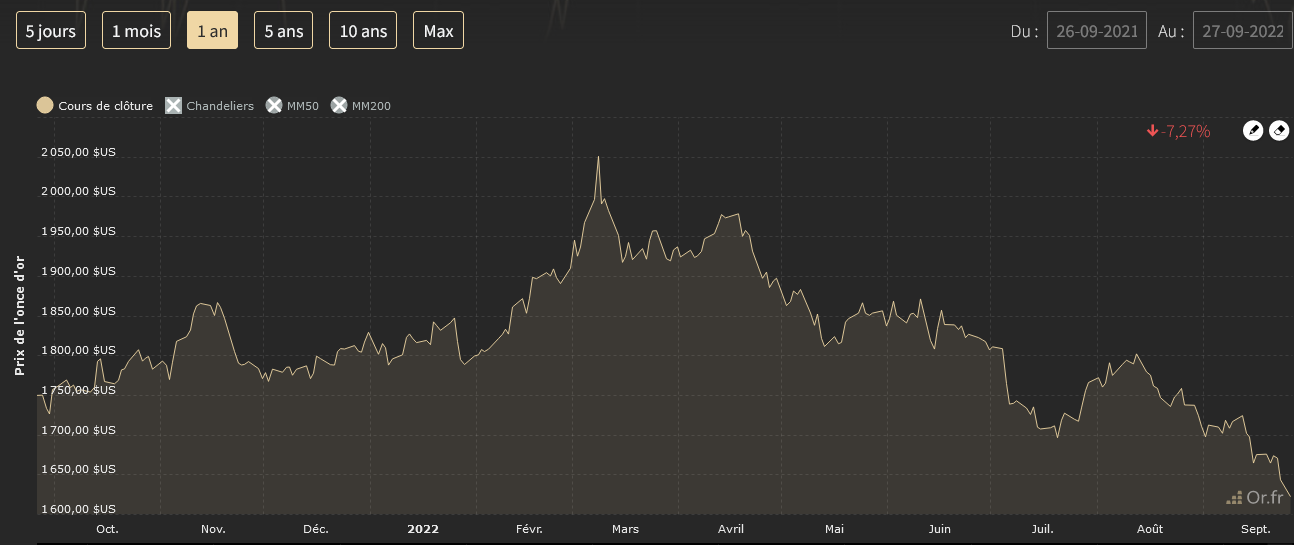
But it would be a mistake to turn away from gold because, expressed in euros, it resists very well and confirms that it is an excellent protection:
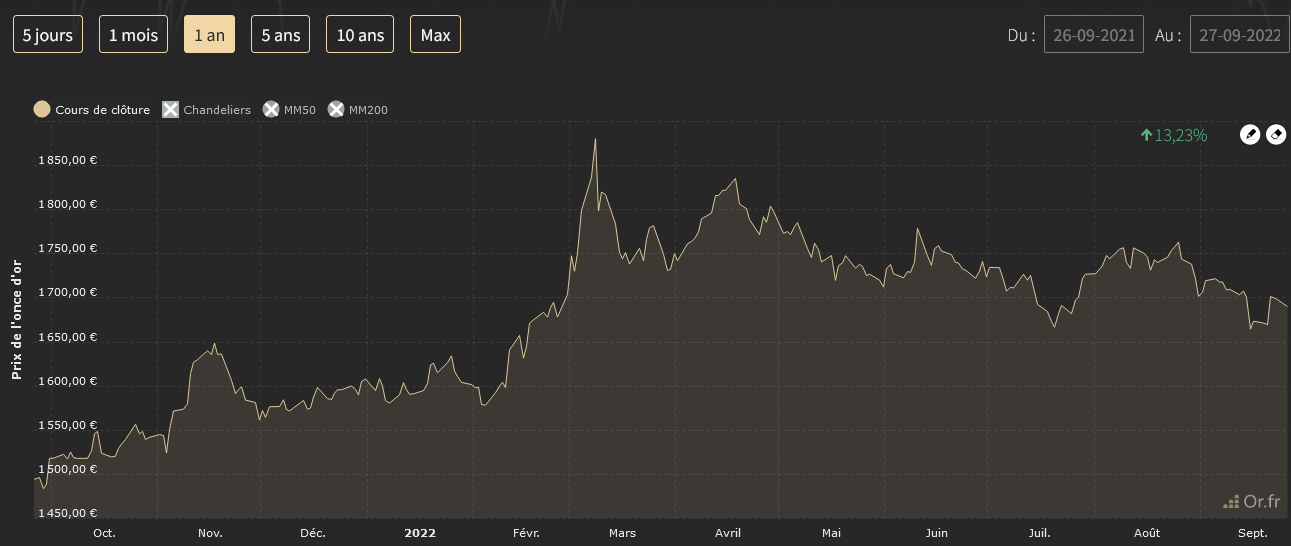
The difference between the two charts is explained by the euro, which is also falling against the dollar. In Europe, in the eurozone, the purchase of gold is therefore still advisable, especially when compared to other traditional assets such as stocks and real estate, which are losing ground.
But then, should you sell all your assets and switch to the dollar? Will the U.S. currency become the new star investment?
Not so fast. First, we need to understand why the dollar is in such great shape, and whether it will last.
Of course, it is the increase in the key interest rate by the US central bank, the Fed, that explains this upturn in form: it is now in a range of 3 to 3.25%. And it's not over yet. Jerome Powell insists that there will be more hikes. He adds that the size of the institution's balance sheet will decrease. The money printing is over. The stated objective is to beat inflation, even if it means paying for it with a recession: "There is no painless way to beat inflation. There will need to be a significant increase in the unemployment rate," said the Fed Chairman.
Can this voluntary policy be sustained? Raising interest rates causes interest costs to skyrocket for indebted agents, chief among them the federal government, which is not doing much to reduce its budget deficit. According to the Congressional Budget Office (CBO), the U.S. government will spend $400 billion on interest payments in 2022, which is already equivalent to more than "8 percent of all federal revenue collections and roughly $3,055 per household." The real estate market, which runs on credit, will also suffer. The stock market too: Nouriel Roubini predicts a "severe, long and horrible" recession and a 40% drop in stocks.
Will the Fed stick to its rigorous program? History is not in its favor, as this analyst reminds us. Since the subprime crisis, forecasts for balance sheet reduction have been systematically missed:
One of my favorite charts.
— Joe Consorti ⚡ (@JoeConsorti) September 19, 2022
"We're tapering" they shouted into the void - only to swiftly run up the balance sheet.
The Fed can't meaningfully taper for very long without breaking something and subsequently becoming the buyer of last resort. pic.twitter.com/QknAYiSbxe
The analyst concludes that "The Fed can't meaningfully taper for very long without breaking something and subsequently becoming the buyer of last resort." Will it be different this time? If not, what will "break"? The Dow Jones? Real estate? The federal government's debt load? There is so much debt everywhere in the economy that there are many fragilities. So no, buying the dollar may not be a good idea.
The dollar's good shape is in stark contrast to other major currencies, but paper currencies are all plagued by the insidious evil of inflation. The dollar is doing well at the moment, but as the saying goes, "In the kingdom of the blind, the one-eyed man is king".
Reproduction, in whole or in part, is authorized as long as it includes all the text hyperlinks and a link back to the original source.
The information contained in this article is for information purposes only and does not constitute investment advice or a recommendation to buy or sell.










